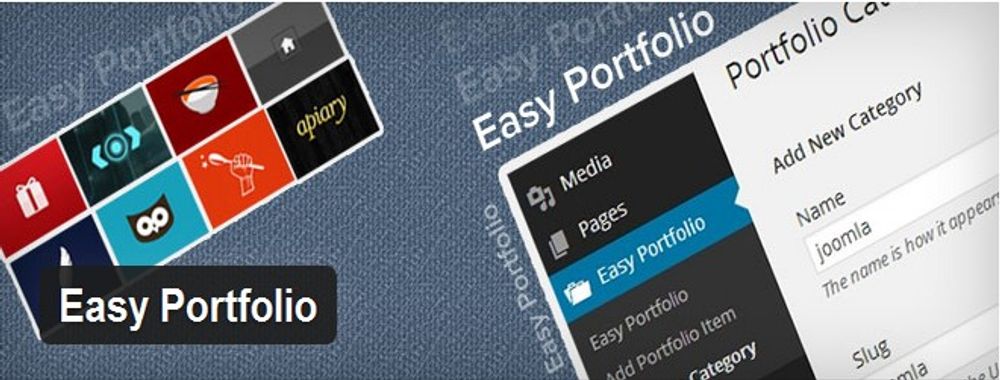On-spec work or “speculative work” is a form of free work which is created to win business. Learning whether or not to do on-spec work and what the norms are within your industry can help protect your business and ensure that the cash keeps flowing through the door.
The term “on spec” means as “a speculation or gamble”. In freelance and entrepreneurial life, it applies to work that we create, without pay, in the hopes of winning work or payment. It’s important to understand speculative work before you decide whether to involve your freelance or entrepreneurial practice or not.
You might want to bear in mind what Joe Rinaldi, VP of business development at Happy Cog agency says:
“Each time agencies pre-invest in spec work, they mortgage their organizations on winning the work and the payment that will follow. Because their sales process includes unpaid design and development work before a project is officially “won,” the pressure is on the person in a business development position to “sell the creative.” If the work goes unsold, agencies operate at a deficit — one that increases as they continue to lose spec-work-driven pitches. Staff are often overtaxed having to create pitch work on top of a regular workload, which can contribute to more frequent staff turnover (another risk to your project).”
– Joe Rinaldi
Find Out What the Industry Norm Is
If you’re a training developer and writer, there’s plenty of work done “on spec” in your industry, but—truthfully—… it’s not the norm. It’s a technique used by some people trying to break into the industry and by those who are getting desperate for work. If you’re thinking “intern”, that’s along similar lines, but it needn’t be for as long.
On the other hand, if you’re an advertising creative, it’s very much the norm for agencies to create work “on spec” and then to compete against other agencies for a client’s business.
Before you consider whether you will work “on spec”, determining your industry’s norm makes good sense.
What’s the Opportunity Cost?
It may be the norm to work “on spec” in advertising to win large accounts, but smaller accounts often don’t require the same approach.
Is it better to concentrate on winning several small clients than gambling on one big client? Sure—a big client may be more profitable, but what if you don’t win their business? Would you have been better off concentrating on getting paid than taking the gamble?
An opportunity cost is the costs of pursuing one course of action over another. Before you work for free in the hopes of a reward, ask yourself—”What could I get for my time and effort if it were paid?”

An opportunity cost is how much it costs you to do one thing when you could be doing something else. In some cases, such as going to college, that cost is expected to be paid back with interest when you get work. In others, e.g., working on spec, the return on the costs is not so clear from the outset.
Best Practice: How Much Time Should You Spend On Speculative Work?
If working “on spec” is your industry norm and you want to do it because you feel the opportunity cost is not too heavy, make sure that you balance your time. You should never spend more than 20% of your time on speculative work; the rest should be focused on paying projects. If you run out of money… you’ll have no business.
Assess the Competition
You should also try to determine whom you are competing with when it comes to working “on spec”.
You want to see if you can compete with others going forward for the business; a single freelancer may be able to offer a cost-advantage over a big agency (for example), but is cost likely to be a deciding factor? If it’s not, you may find it impossible to compete with the larger business on things such as turnaround times and overall quality of work.
You also want to look at the volumes of competition. Working “on spec” against two other companies gives you an approximately 33% chance of winning the business (assuming you all do a great job of the “on spec” work).
Competing against 19 other companies, on the other hand, gives you a 5% chance of winning the business. You’d need to go through the process nearly 20 times to be sure of winning work in these situations. Take a look at your opportunity costs; is it worth it right now?

Author/Copyright holder: Syassine. Copyright terms and licence: CC BY-SA 3.0
Even a simple SWOT analysis of the competition involved in an “on-spec” project can help you decide whether the investment of your time is really worth it or not.
Build In the costs of Working “On Spec”
There is nothing wrong with working “on spec”, but you must appreciate that it is a gamble. Not every gamble pays off. If you haven’t built the costs of working “on spec” into your business model, you should do so before starting any “on spec” work.
Two Times You Should Never Work “On Spec”
There are two common instances in which freelancers and entrepreneurs are invited to work “on spec” that represent astonishingly low-value returns to freelancers:
Competition Portals
Freelancer, 99 Designs, etc. offer freelancers the opportunity to enter competitions with their work. The client chooses their favourite design (usually, although writing competitions are popular, too) and pays the winner. Everyone else gets nothing.
These competitions will often attract hundreds of entries. It doesn’t matter how good you are – the potential returns are minimal. You know very little about the client and are thus relying not just on delivering a great design but also on guessing what kind of great design will turn the client’s head.
The only exception to this rule is if you can find a competition with a low number of entrants and you already have a suitable piece lying around to submit. Maybe you experimented with book cover design a while back but didn’t sell the designs? If you can quickly change them and stick them in a competition—you’ll be no worse off than when you started. Never create new work for competitions… the payoff is minimal. You’d be much better off using the time to market and sell your services instead.
 Author/Copyright holder: 99designs. Copyright terms and licence: Fair Use.
Author/Copyright holder: 99designs. Copyright terms and licence: Fair Use.
99 designs has a clever business model, but it’s not one that’s going to help you very much as a freelancer.
Revenue-sharing Models
The revenue-sharing model is simple. The client comes to the freelancer and says: “If you do XYZ (build my website, do my marketing, develop my product, etc.) for me and it’s successful—I will give you half (or some other percentage) of the profits. I can’t afford to pay you for your work now, though.”
Think about this. In essence, the client is asking you to build a business for them. Then they’re offering to give you some of the money that they make from that business. Wouldn’t it be better to create your own business and keep all the returns?
You will get these offers constantly when you start freelancing. Don’t go for them. Find work that pays or create your own businesses instead.
However, if the client is willing to pay (perhaps at a slightly reduced rate) and offers revenue sharing on top, this model can be OK. It’s worth noting that these clients are very few and far between. By and large, revenue sharing is almost always in the client’s interests and not in yours.
The Takeaway
Working “on spec” is a common practice in some freelance industries, and in others it is not. Only you can decide whether you wish to gamble on this kind of work; you should always ensure that your cash flow won’t be jeopardized by working on spec.
Consider the opportunity costs and the level of competition before pursuing on-spec work. Don’t get bogged down in low-/no-value opportunities. Pass on them and either seek better opportunities or paid projects.
References & Where to Learn More
Hero Image: Author/Copyright holder: Kent Nguyen. Copyright terms and licence: CC BY-ND 2.0
Joe Rinaldi, War on Spec
No! Spec: What is spec work?
Check out this interesting read: A Careful Defense of Spec Work












